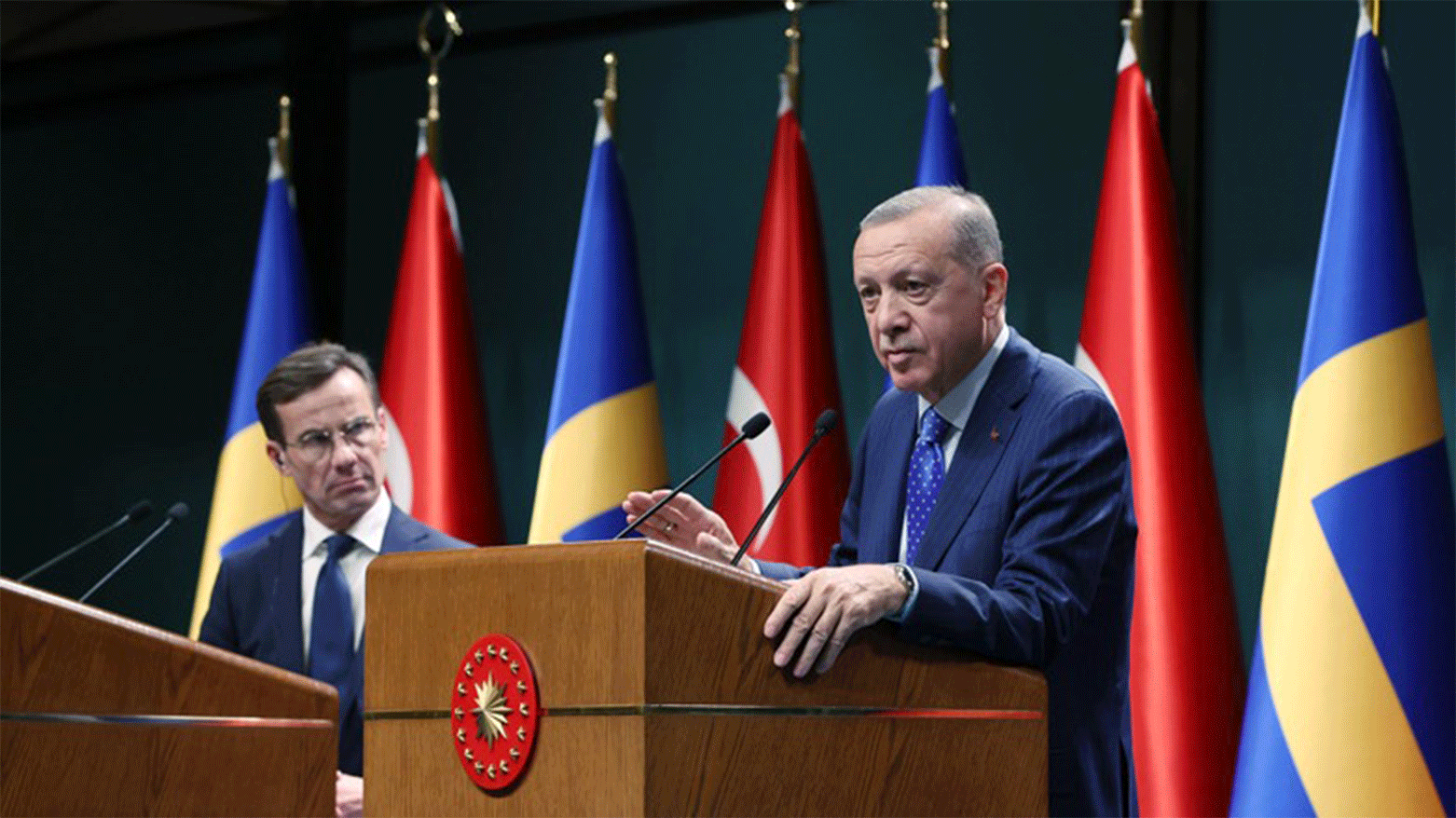Turkish Parliament tentatively approves Sweden NATO bid amid US F-16 row

ERBIL (Kurdistan24) - A Turkish Parliament committee on Tuesday provisionally approved Sweden’s application to join NATO, with the vote now going to the general assembly for an official authorization.
The Nordic country’s pending ascension comes after years of a stalemate caused by a lengthy list of Turkish demands, mainly the requirement by Turkey to deport Kurdish fugitives living in Sweden.
NATO allies have continuously pressured Turkey to approve Sweden's stalled bid to join the military alliance as impatience has grown at Ankara over the delay. Turkey and Hungary are the only NATO members yet to ratify Sweden's bid, more than 18 months after it applied for membership.
Both Sweden and Finland had formerly maintained long-standing policies of non-alignment in geopolitical disputes, yet the two countries revised their policies after the onset of the Russo-Ukrainian War, whence they desperately sought NATO protection. Finland became NATO's 31st member in April.
NATO chief Jens Stoltenberg on Tuesday hailed Turkey for approving Sweden's bid, saying "I welcome the vote by Turkish Parliament's Foreign Affairs Committee to ratify Sweden's NATO membership."
For Turkey, the deportation of Kurdish fugitives is an essential requirement for maintaining diplomatic ties, along with the requirement that countries to label the Kurdistan Workers’ Party (PKK) as a terrorist organization.
That request is reciprocated by the US, and EU, among others, most of which are eastern Turkic countries.
However, President Recep Tayyip Erdogan hinted that Turkey was somewhat forced to approve Sweden's bid, as reports emerged that the US had warned Turkey it would cancel the sale of F-16s should it deny Sweden’s bid.
Like Sweden’s NATO bid, Turkey’s F-16 bid has been continuously delayed. US Sen. Bob Menendez on July 19 told Defense News that there are concerns about “Turkey’s repeated incursions into the airspace of fellow NATO ally Greece and its ongoing occupation of northern Cyprus.”
Moreover, US Senate Foreign Relations Committee Chairman Ben Cardin told Defense News on Oct. 26 that they are re-examining Turkey's record, specifically “the use of the weapons systems, the human rights issues and concerns that we have. So there are other issues that we’ll be looking at.”
Read More: Turkey Retaliates Against PKK, yet Contradicts Support for Hamas
Sweden’s tentative NATO ascension comes as the Turkish Defense Ministry on Saturday announced that 30 PKK fighters were “neutralized” as part of 29 airstrikes in its military campaigns in the Kurdistan Region and northeastern Syria. That was in response to the killing of 12 Turkish soldiers by the PKK days earlier.
Afterwards, Erdogan gave a fiery speech on Christmas Day at an event in Ankara, where the president remarked "The treacherous attacks in northern Iraq are an attempt to undermine our country.”
“We must take a united stance together against the terrorist threat that strives to damage our inner society and weaken us,” the passionate leader continued.
Read More: Turkey destroying NE Syria oil, power facilities: Kurds
Between Oct. 5-10, Turkish airstrikes damaged more than half of Kurdish-held northeast Syria's power and oil infrastructure, dealing a blow to its petroleum energy-dependent economy. The strikes on more than 150 locations in north and east Syria in the governorates of Hasakeh, Raqqa, and Aleppo, killed dozens of people including civilians, and damaged civilian structures, civic groups said at the time.
Analytically, the skirmishes between the US-backed Syrian Democratic Forces (SDF) and Turkish-backed groups, in addition to attacks by Turkey itself, have placed the US in a predicament. The lingering threat of an ISIS resurgence in an embattled Syria is a top priority, yet appeasing Turkish demands requires the US to essentially abandon its ally, the SDF, which Turkey alleges is an offshoot of the PKK.
That quandary was made apparent on Oct. 5, when US F-16 warplanes shot down a drone belonging to Turkey, a country in control of the third largest NATO army.
The drone was deemed a potential threat to American forces in Syria, epitomizing the fraught differences between the two NATO allies' agendas in the country, with Turkey viewing the US-backed SDF as a terror group.
